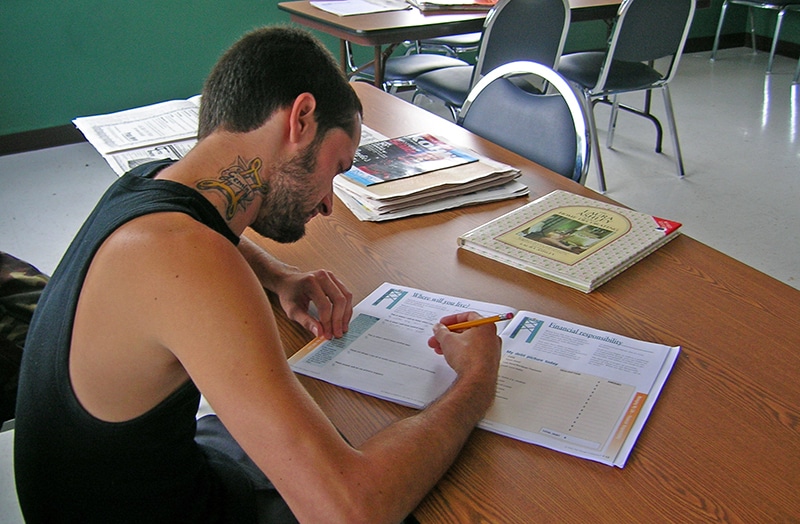
A Day Reporting Center is a highly structured, nonresidential program that uses supervision, sanctions, and services coordinated from a central location. A DRC aims to provide structured transition, typically for individuals on parole or probation, to support compliance with conditions of release. GEO Reentry operates DRCs nationwide, and whether they are called Community Service Centers, Reentry Service Centers, or other names, they all have a common method where individuals receive treatment and training to help break patterns of criminal behavior and access links to community services that enhance stability upon reentry.
GEO Reentry opened its first DRC in Denver, Colorado, in 1991 for the Colorado Department of Corrections, Denver County, and several of its neighboring counties. The Denver DRC also partnered with the Office of Behavioral Health Recovery In a Safe Environment (RISE) program and the Denver County Jail and Denver Sobriety Court. In 1998, GEO Reentry opened a pilot DRC program funded by the Illinois Department of Corrections to provide DRC services to more than 3,500 high-risk individuals on parole. The program was established in a neighborhood of Southside Chicago (Englewood) critically impacted by gangs, crime, violence, drug use, and family and community dissolution. Individuals referred to the program had to meet three criteria: two or more prior prison incarcerations; served sentences of 10 years or more; and under 25 years old and serving time for serious crimes against another person. The recidivism rate for this cohort was 85 percent.
A three-year study of 1,500 participants at the Southside Chicago DRC revealed excellent results, including a 40 percent reduction in criminal activity among participants. As a result, Illinois parole officials expanded the number of DRCs to eight locations, many of which are still open today to support the state’s parole department.
For the next 30 years, GEO Reentry invested heavily in learning more about reentry best practices, learning from experts, and applying, adapting, and evolving its DRC model. Some of the respected experts engaged to help advance the GEO Reentry model have included Ed Latessa, who led the School of Criminal Justice for nearly 40 years at the University of Cincinnati; Joan Petersilia, American criminologist, Professor of Law at Stanford Law School, and faculty co-director of the Stanford Criminal Justice Center; Stephanie Covington, an internationally recognized clinician, author, organizational consultant, and lecturer who focuses on trauma- and gender-informed care; Bradford Bogue, research consultant and director of Justice System Assessment and Training; and Mark Carey, founder of The Carey Group and Carey Group Publishing.
